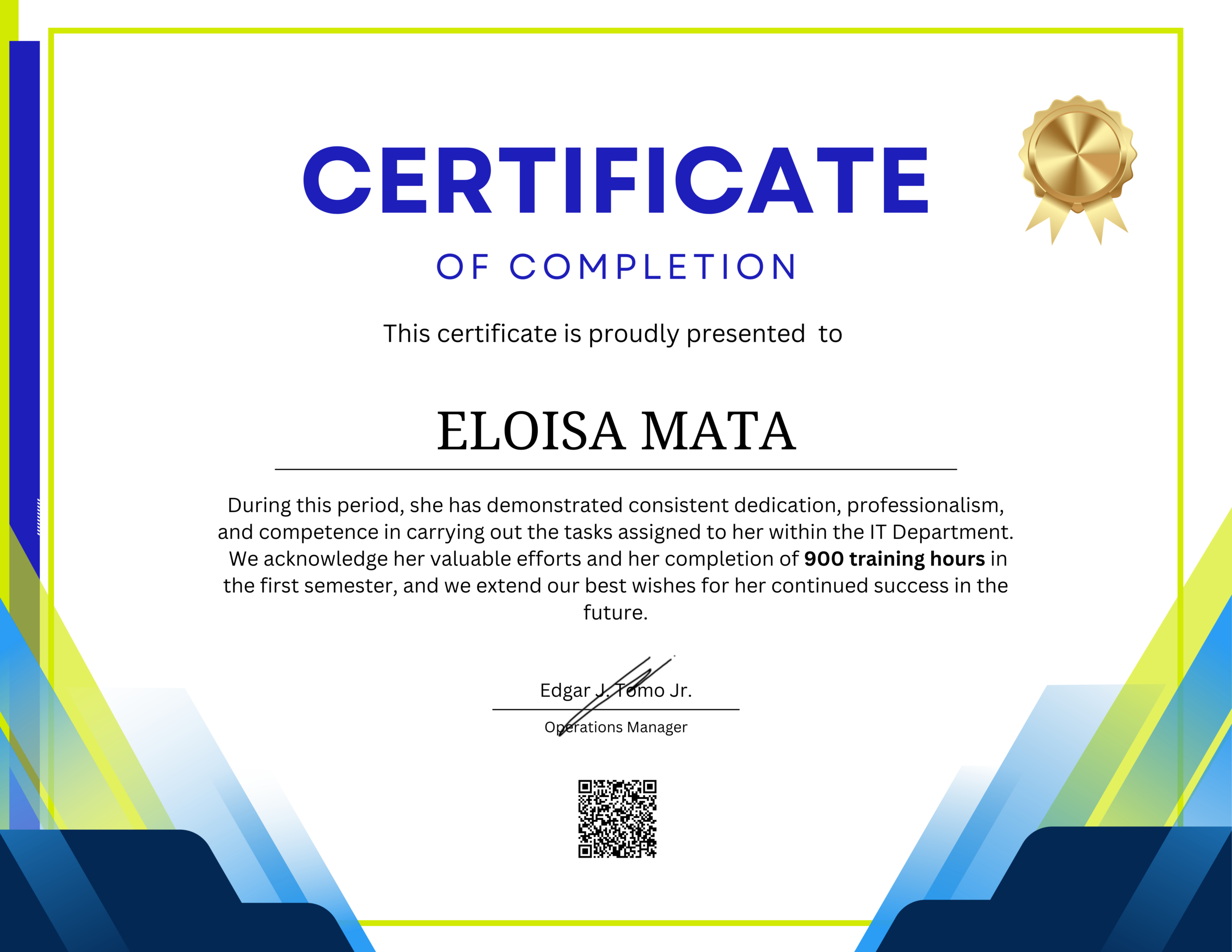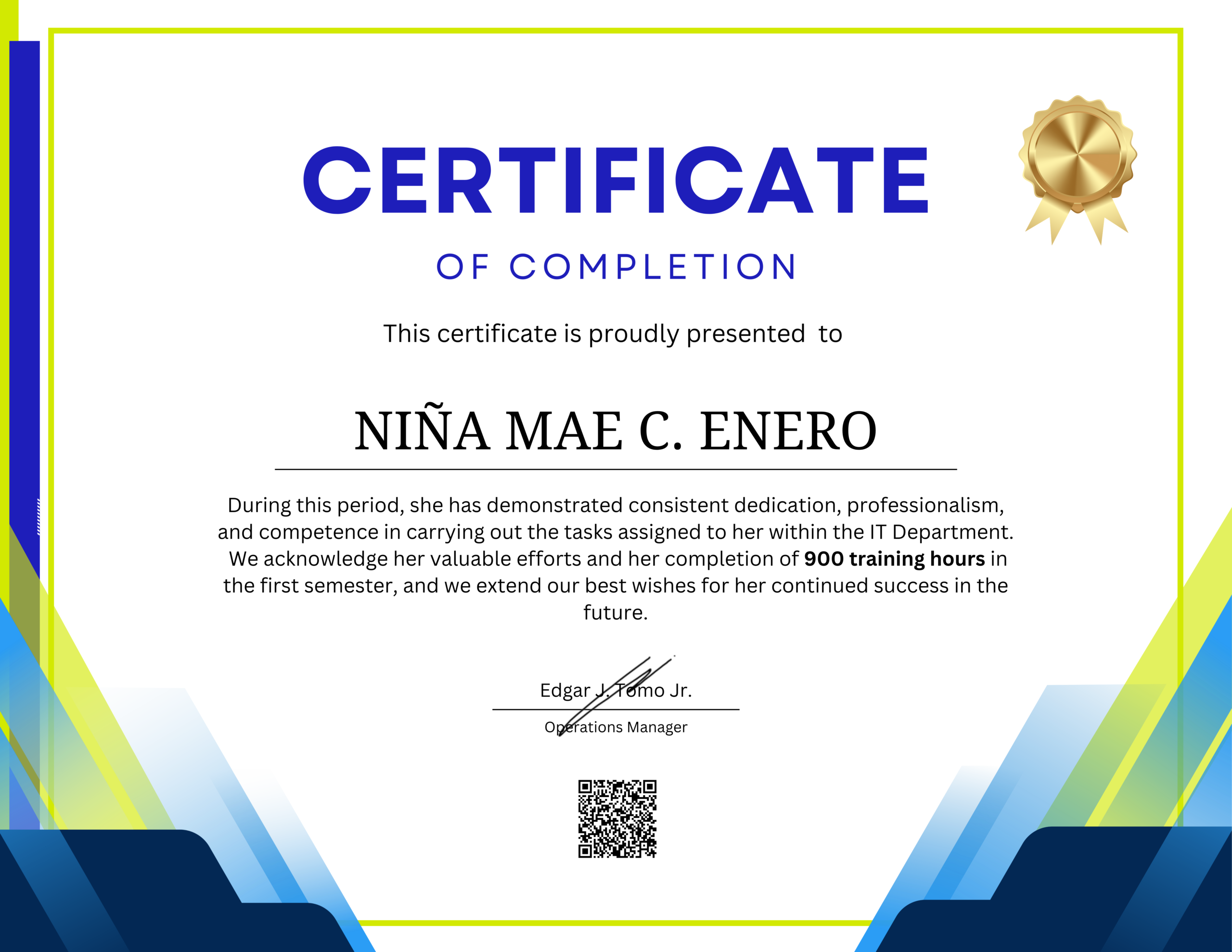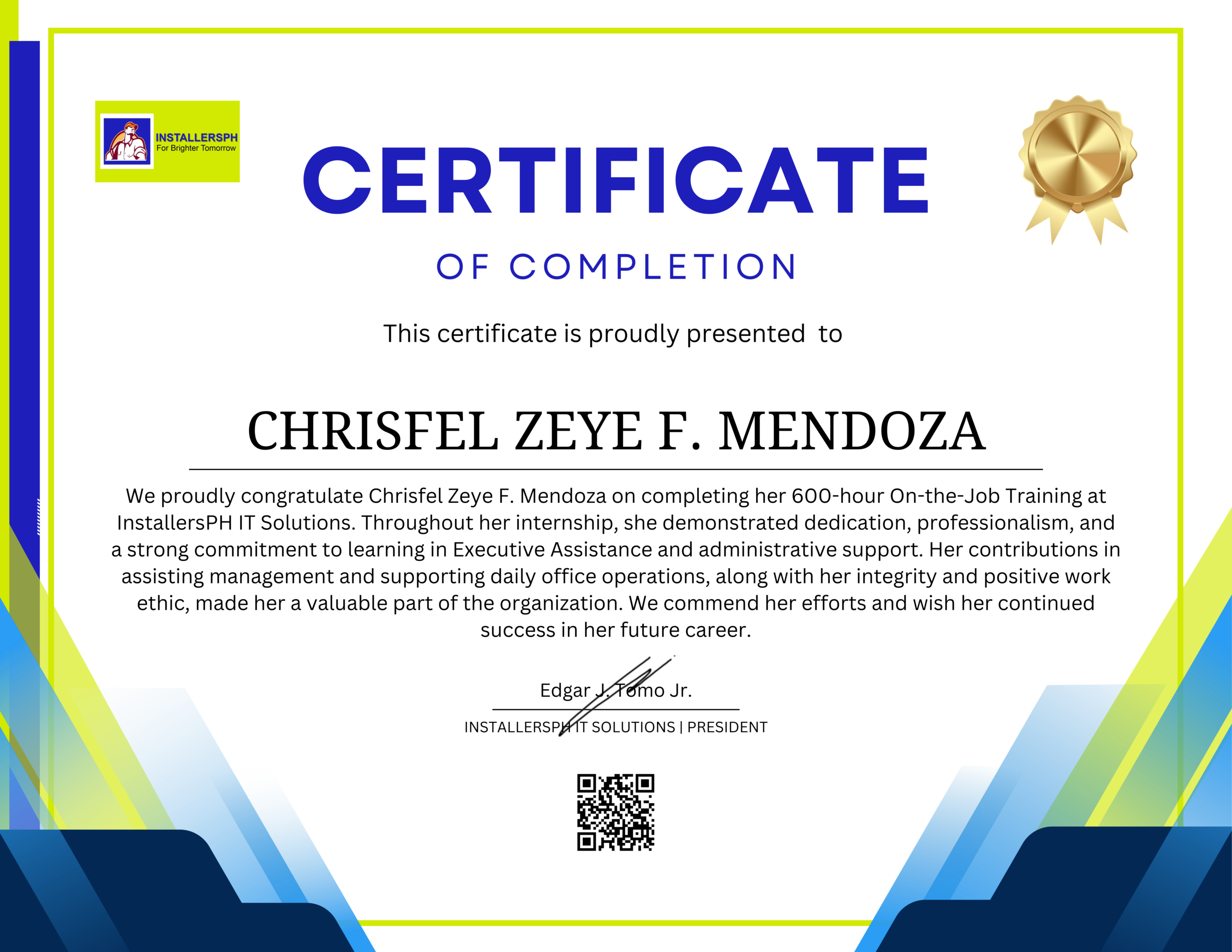The On-the-Job Training Experience of Niña Mae C. Enero Acknowledging Dedication in IT On-the-Job Training. During her on-the-job training period, she demonstrated consistent dedication and a strong sense of responsibility in fulfilling …
Home Sweet Safe Home: How CCTV Cameras Enhance Residential Safety Measures.

Introduction
In today’s rapidly evolving world, ensuring the safety and security of our homes has become a top priority for homeowners worldwide. With the advancement of technology, there has been a significant rise in the adoption of Closed-Circuit Television (CCTV) cameras as an integral part of residential security systems. In this comprehensive guide, we delve deeper into the multifaceted benefits of CCTV cameras, their various features, installation considerations, and how they significantly enhance overall safety measures for homeowners.
Understanding CCTV Cameras
CCTV cameras, also known as video surveillance cameras, are sophisticated electronic devices designed to capture and transmit video footage of specific areas or surroundings. Unlike traditional television broadcasts, CCTV cameras operate on a closed circuit, meaning the video feed is only accessible to authorized users. These cameras come in various types, including dome cameras, bullet cameras, PTZ (Pan-Tilt-Zoom) cameras, and more, each offering distinct advantages depending on the specific requirements and preferences of homeowners.
Enhancing Residential Security
One of the primary motivations behind the widespread adoption of CCTV cameras is their unparalleled ability to enhance residential security. These cameras serve as a visible deterrent to potential intruders, significantly reducing the likelihood of burglary, vandalism, or other criminal activities. The mere presence of CCTV cameras acts as a psychological barrier, dissuading opportunistic criminals from targeting a property.
Moreover, CCTV cameras provide homeowners with the capability to monitor their property in real-time, allowing them to respond promptly to any suspicious activities or emergencies. Whether it’s monitoring the perimeter of the property, the entrance points, or specific areas of interest, CCTV cameras offer comprehensive coverage, ensuring that homeowners have full visibility and control over their security.
Remote Monitoring Capabilities
Advancements in technology have revolutionized the functionality of CCTV cameras, introducing remote monitoring capabilities that empower homeowners to access live footage from their property anytime, anywhere. Through the use of dedicated mobile applications or web interfaces, homeowners can remotely view the live feed from their CCTV cameras using smartphones, tablets, or computers.
This remote monitoring feature is particularly beneficial for homeowners who travel frequently or spend extended periods away from home. Whether it’s checking in on the house while on vacation or monitoring deliveries while at work, remote access to CCTV cameras provides peace of mind and reassurance that the home is safe and secure, even when physically absent.
24/7 Surveillance
Unlike traditional security measures such as alarms or motion sensor lights, CCTV cameras offer continuous surveillance of the property, 24 hours a day, 7 days a week. This constant monitoring ensures that any suspicious activity is captured on camera, providing valuable evidence in the event of a security breach or criminal incident.
Whether it’s daytime or nighttime, rain or shine, CCTV cameras remain vigilant, recording every movement and activity within their field of view. This round-the-clock surveillance capability is invaluable for homeowners seeking comprehensive security solutions that offer unrivaled protection and peace of mind.
Integration with Smart Home Systems
Another significant advantage of CCTV cameras is their seamless integration with smart home systems, allowing for centralized control and management of various security devices and appliances. By integrating CCTV cameras with smart home platforms such as Amazon Alexa, Google Assistant, or Apple HomeKit, homeowners can create a cohesive ecosystem where security cameras work in tandem with other connected devices.
For example, homeowners can set up automated routines that trigger specific actions based on detected motion or activity captured by CCTV cameras. This integration enables intelligent responses, such as turning on lights, sounding alarms, or sending notifications to mobile devices, thereby enhancing overall security and deterrence capabilities.
Legal Considerations
While CCTV cameras offer numerous benefits in terms of security and surveillance, it’s crucial for homeowners to be mindful of the legal considerations surrounding their use. In many jurisdictions, there are regulations and privacy laws governing the installation and operation of CCTV cameras, aimed at safeguarding individuals’ rights to privacy and data protection.
Before installing CCTV cameras on their property, homeowners should familiarize themselves with the relevant laws and regulations applicable to their location. This may include obtaining permits or permissions from local authorities, adhering to guidelines regarding camera placement and signage, and ensuring compliance with data protection laws when capturing and storing video footage.
Installation and Maintenance
Proper installation and maintenance are essential for ensuring the effectiveness and longevity of CCTV camera systems. Homeowners should enlist the services of qualified professionals or reputable security companies to install their surveillance system, ensuring that cameras are positioned strategically to maximize coverage and minimize blind spots.
During the installation process, careful consideration should be given to factors such as camera placement, field of view, lighting conditions, and potential obstructions. Additionally, regular maintenance and upkeep are necessary to ensure optimal performance and reliability of CCTV cameras. This may include cleaning lenses, checking for any technical issues or malfunctions, and updating firmware or software as needed.
Cost Considerations
When considering the implementation of CCTV cameras, homeowners should factor in the associated costs, including equipment purchases, installation fees, and ongoing maintenance expenses. The cost of CCTV camera systems can vary widely depending on factors such as the number of cameras, the type of cameras, additional features or functionalities, and the complexity of the installation.
While there is an upfront investment associated with installing CCTV cameras, many homeowners view it as a worthwhile investment in the long-term security and protection of their property. Moreover, the potential cost savings associated with preventing burglary, theft, or property damage far outweigh the initial expenditure incurred in deploying CCTV camera systems.
Future Trends and Developments
As technology continues to evolve, the landscape of residential security and surveillance is constantly evolving, with new trends and developments shaping the industry. One notable trend is the integration of artificial intelligence (AI) and machine learning algorithms into CCTV camera systems, enabling advanced features such as facial recognition, object detection, and behavioral analysis.
Additionally, there is a growing emphasis on interoperability and compatibility between different security devices and platforms, allowing for seamless integration and centralized management of home security systems. From cloud-based storage solutions to enhanced remote monitoring capabilities, the future of CCTV cameras promises to deliver even greater convenience, efficiency, and effectiveness in safeguarding residential properties.
Conclusion
In conclusion, CCTV cameras serve as a cornerstone of modern residential security systems, offering homeowners a comprehensive solution for protecting their property and loved ones. From deterring criminal activity and providing real-time monitoring to integrating with smart home systems and adhering to legal considerations, CCTV cameras play a vital role in enhancing overall safety measures.
By understanding the various features, installation considerations, and legal implications of CCTV cameras, homeowners can make informed decisions regarding the implementation of surveillance systems tailored to their specific needs and preferences. With the peace of mind that comes from knowing their home is equipped with state-of-the-art security technology, homeowners can truly experience the essence of “home sweet safe home.”
Related Articles
The On-the-Job Training Experience of Niña Mae C. Enero Acknowledging Dedication in IT On-the-Job Training. During her on-the-job training period, she demonstrated consistent dedication and a strong sense of responsibility in fulfilling …
The On-the-Job Training Experience of Chrisfel Zeye F. Mendoza Introduction. On-the-Job Training (OJT) plays a vital role in preparing students for the professional world by allowing them to apply academic knowledge in …



